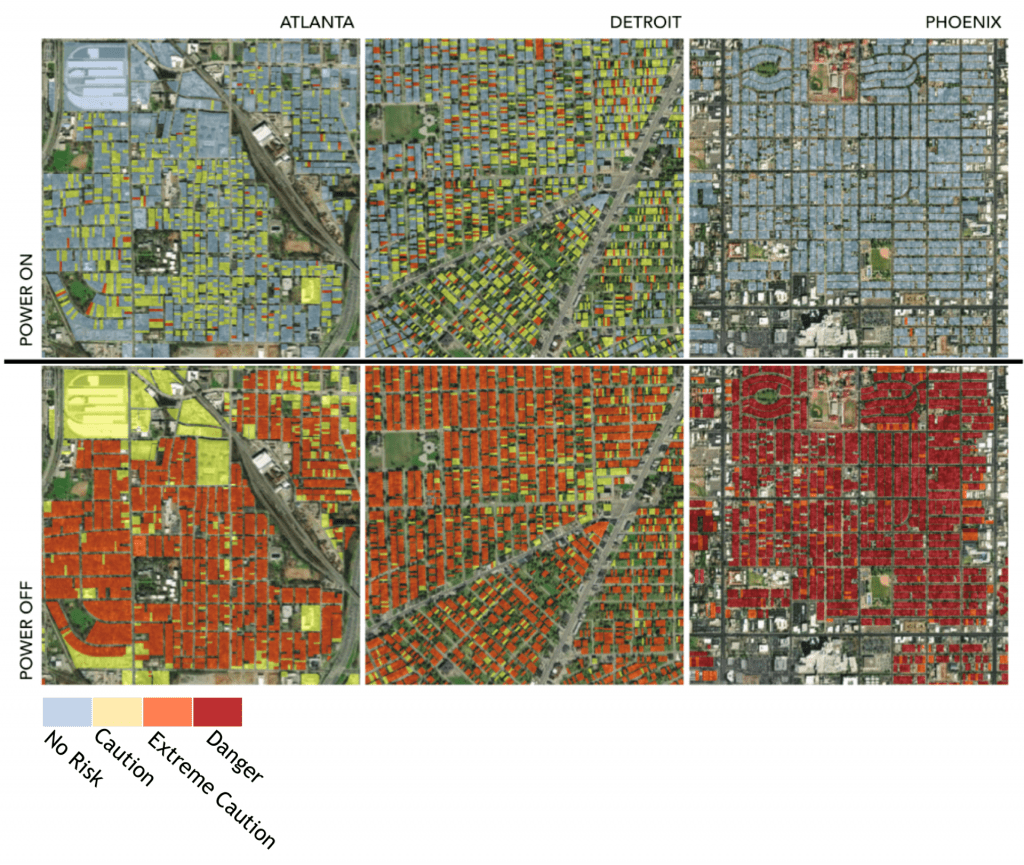Heat wave events are increasing in both frequency and intensity in large cities around the world. When episodes of extreme heat concur in time with other threats to human health – such as wildfires or a global pandemic – such combined health threats are characterized as “compound climate events.” Perhaps the most threatening compound climate event confronting large cities of the US is a concurrent heat wave and blackout event. As urban populations become ever more reliant upon mechanical air conditioning with rapidly rising temperatures, a resilient electrical grid system is imperative. Yet, recent trends show blackout events to be increasing rapidly as well, with the number of such events in the US increasing by more than a third since 2015.
Through the Three City Heat and Electrical Failure Adaptation Study (3HEAT), sponsored by the National Science Foundation, the Urban Climate Lab is estimating the population health risk of a combined heat wave and blackout event for Atlanta, Detroit, and Phoenix. As shown here, our results highlight not only the wide extent of heat risk during blackout conditions, but the many households confronted regularly with hazardous levels of heat exposure due to a lack of continuous access to air conditioning – a critical issue of climate equity and indicator of health disparities in large cities. We are partnering with city governments to target heat management strategies to neighborhoods and residents most at risk to such compound climate threats. Our work on climate equity has been featured on National Public Radio and The Guardian.
